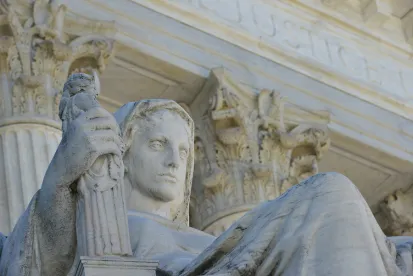Last Friday, various elected officials and consumer-protection groups filed amicus briefs urging the Supreme Court to adopt the expansive interpretation of the ATDS definition for which Plaintiff Noah Duguid had advocated in a brief he filed the week before. The recent briefs and other filings in the case can be found here.
The Facebook case arises from a security-alert text message that was sent to an individual who had not consented to automated calls, and at long last presents the Court with the critical question of what is and is not an ATDS. (Recall that the FCC has said, and courts have either held or assumed, that text messages should be deemed “calls” for purposes of the TCPA.)
Many of the amicus briefs argue that Congress was aware in 1991—the year it enacted the TCPA—that telemarketers were making increased use of list-based dialing technologies and did not rely exclusively upon number generators. It follows from that, they say, that Congress would have wanted to regulate both kinds of dialing. “By including the ‘store’ prong” in the definition, several Senators suggest, “Congress ensured that it did not exclude the list based dialing systems that . . . at least thirty to forty percent of telemarketers were using at the time of enactment.” Brief of Members of Congress at 12 (emphasis in original). Similarly, the Attorneys General of 37 States argue that Congress must have meant to expand upon existing state law, which by 1991 mostly prohibited list-based dialers. See Brief of Attorneys General at 17-18. “It is therefore implausible,” they conclude, “that Congress . . . would have adopted an autodialer definition so much more circumscribed than the definitions state laws were using at the time.” Id. at 19.
Several of the briefs also argue that limiting the statute to random or sequential numbers would render one of its core exceptions—i.e., the exception for prior express consent—superfluous. For example, the National Consumer Law Center argues that Facebook’s reading renders that exception “essentially meaningless.” See Brief of NCLC at 20. In its view, there would be no need for such an exception if the statute did not apply to stored numbers (i.e., lists of numbers for which the caller has consent) in the first place.
Finally, several of the briefs warn that limiting the statute’s scope would also limit consumers’ protections from unwanted calls and texts. See Brief of Members of Congress at 18 (“[J]ust as the number of unwanted calls continues to grow despite the existence and enforcement of the TCPA, in the absence of the safeguards provided by the TCPA, the number of unwanted calls would grow exponentially . . . .”); see also Brief of Electronic Privacy Information Center at 26 (“The autodialer ban should not be interpreted in a way that allows mass dialing without user consent at a time when unauthorized collection and use of personal data has become such a widespread problem.”).
Facebook, Inc. v. Duguid is set for oral argument on December 8th. We will be monitoring the proceeding closely and will report on further developments as they arise.





 />i
/>i
